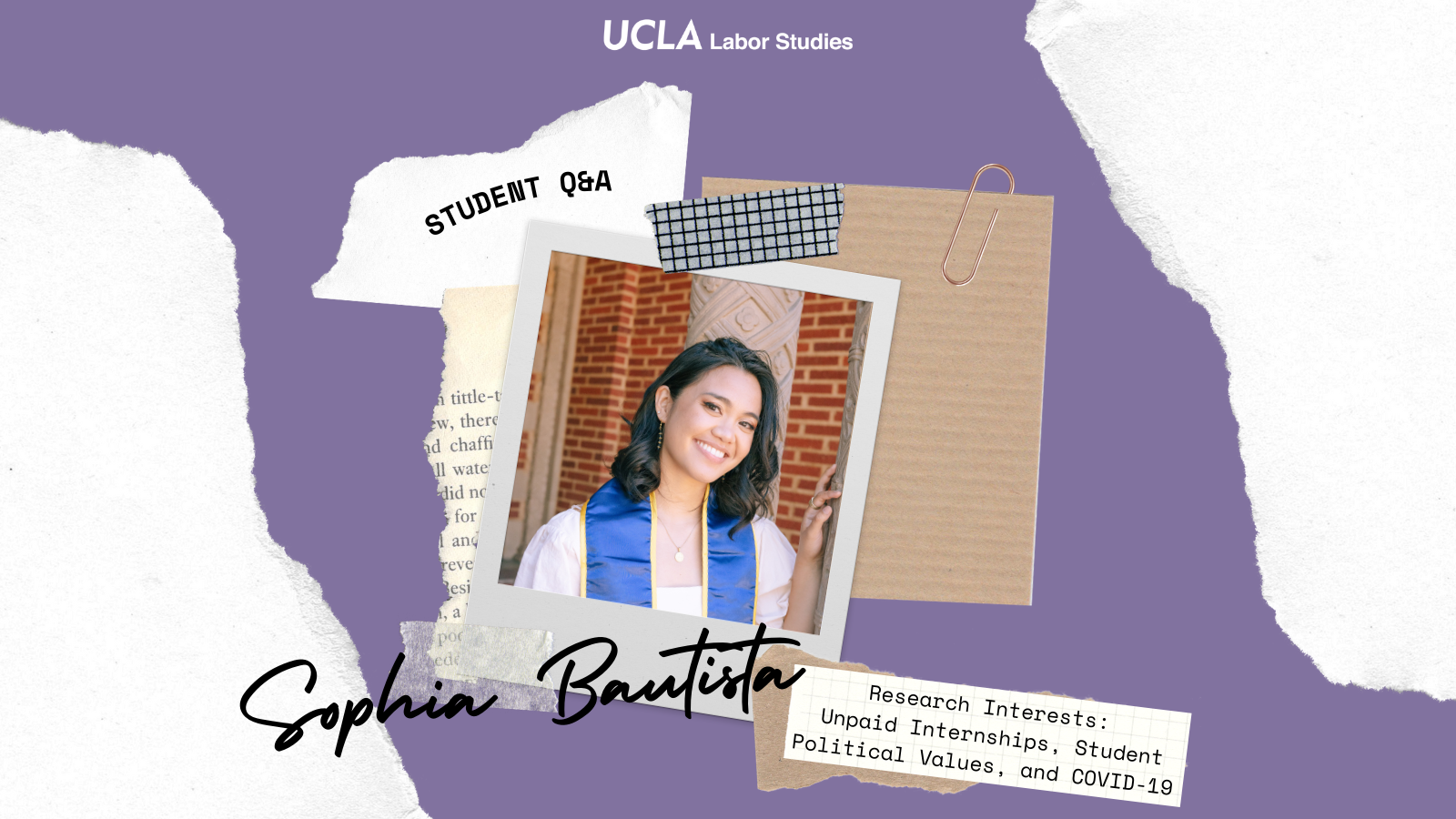Student Researcher Q&A: Sophia Bautista
Student Researcher Q&A: Sophia Bautista on Unpaid Internships, Student Political Values, and COVID-19
Sophia will be presenting the research project Run Me My Money: Unpaid Internships, Student Political Values, and COVID-19 at the Undergraduate Research & Creativity Showcase on May 25, as part of UCLA Undergraduate Research Week (May 24-28).
Can you tell us a little bit about yourself and your research interests?
I’m a recent graduate of UCLA; I majored in Political Science and minored in Labor Studies. I was a part of last summer’s Labor Summer Research Program (LSRP), where we examined the effects of COVID-19 on workers and learners. It was where I was able to finally articulate my experience as a working student managing two unpaid internships. COVID-19 brightened a lot of the fault lines of inequality inherent in neoliberalism. It was what I learned in that program that inspired me to pursue this research project. I’ve also participated in UCLA’s Quarter in Washington program last fall, where I conducted research about the effects of racial segregation in public schools and how that affected youth political attitudes in my hometown. I’ve always been interested in seeing how the structures we operate under affect and inform us, sometimes beyond our own consciousness.
What is your research project topic?
How COVID-19 affects students’ political values for those who worked unpaid internships.
What is one notable finding from your research?
From what I’ve seen in respondents, students do not have the language to properly articulate their victimhood, but they do possess the intuition that something is wrong with the system they live under. Neoliberalism is still deeply enciphered in students’ mindsets even if they deeply resent being unpaid for their internship. More than half (56%) value career training and job preparation – where internships are a tool – in obtaining a degree to ensure financial security; however, 70% still say that the primary goal of education is critical thinking outside of the university’s ability to provide workplace training and other opportunities for professional development. This is despite reporting feeling anxious (98%), where a large concentration of respondents reporting high levels of stress (57%) and anxiety (42%) and directly attribute it to the job market (40%).
How was your experience conducting research remotely?
I had to rely on social media and other personal networks to conduct my survey and interviews, as opposed to fielding on college campuses in-person. It was tough navigating this, especially during a pandemic where I had other priorities like my work and personal life, but my mentor – Saba Waheed – was always very mindful and worked with me!
What advice would you give others who are considering pursuing their own research project?
As a transfer student, I definitely was insecure about if I was “qualified” enough to conduct research. I would say: just go for it! When you shift your perspective from doing something to “prove” that you’re qualified to just having fun, you remove the anxiety that comes with competition. You’re always #1 when you’re just having fun doing what you love to do!
What skills have you learned from research experience?
I have my mentor Saba to thank for teaching me how to critically examine the data I collected, and how to weave a story out of it. I also learned that there are actually no parameters when it comes to research, and it is as creative as you want it to be!
What’s the most fulfilling part of working on your project?
The agency of answering my question in the way that I want to, even if it was outside the traditional boundaries of what research looked like. I was very intentional to unlearn the idea that research should be objective or rational – if it ever was. It is inherently intimate when there are experiences that can’t be amputated from faceless numbers.


